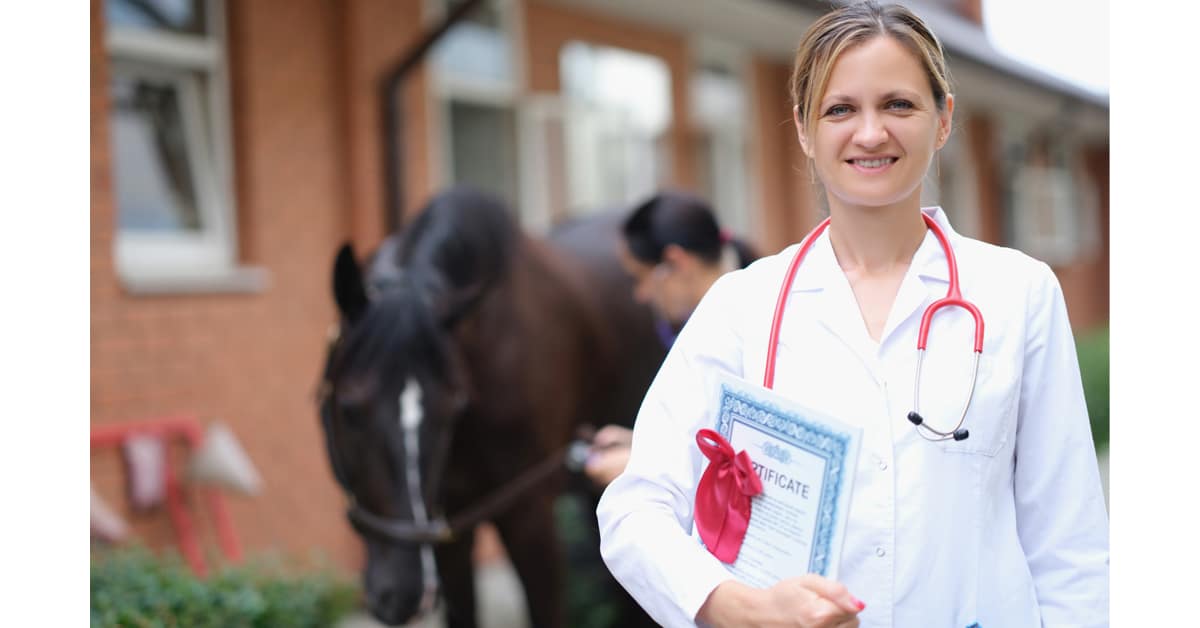There are many details to consider when determining which college to attend for equine studies. While not every career in the equine industry requires a specialized degree, having a degree from a well-known North American horse college may provide a plethora of potential opportunities.
Here are a few Canadian and US colleges and universities which offer equine programs, and some feedback from successful students and dedicated professors.
Ontario Veterinary College, University of Guelph
The Ontario Veterinary College (OVC) at the University of Guelph in Guelph, Ontario, is one of Canada’s highly-respected equine schools. In Canada there are just a handful of universities or colleges which teach equine studies, but Guelph is a world leader in advancing medicine and health research to improve the health of animals. The main focus at Guelph is the study of veterinary medicine with the goal of becoming a Doctor of Veterinary Medicine, as well as related graduate studies and bio-medical science degrees.
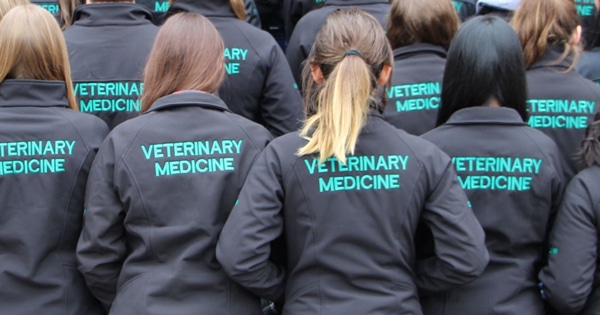
(OVC Facebook photo)
One of the main goals of the University of Guelph’s Equine Studies Online program is for students to take what they’ve learned and apply it in the real word. Holly Gillman has already used many of the lessons on horse behaviour she’s been taught on the horse she recently purchased. However, she’s still looking for more solutions with regards to her horse’s behaviour.
“There are a lot of well-intentioned people in the horse world, but unfortunately much of the information provided is no longer accurate based on what we have come to know and understand of horses today,” says Gillman. “Education is key to creating an awareness of the challenges our equines face in their domestic world and how they struggle to cope and adapt to their environments. When we have an understanding of this, we can set them up better to be successful while maintaining good welfare.”
She adds, “Receiving an education from the equine program has helped me to feel more grounded and confident in what I know about horses. I wish there were more distance learning opportunities in Canada for this field of study; universities like the University of Guelph are helping to lead the way for horses.”
Additionally, Equine Guelph is the horse owner’s centre at the UofG dedicated to improving the health and well-being of horses through education and research. Their Horse Portal offers a wide range of short online courses, and there is even a job board for careers in the industry at equinejobtrack.com.
University of Saskatchewan, Western College of Veterinary Medicine
Located in Saskatoon, WCVM’s (Western College of Veterinary Medicine) main focus is its veterinarian program which examines animal health and the study of disease. This program prepares students to meet the needs of animal health care.
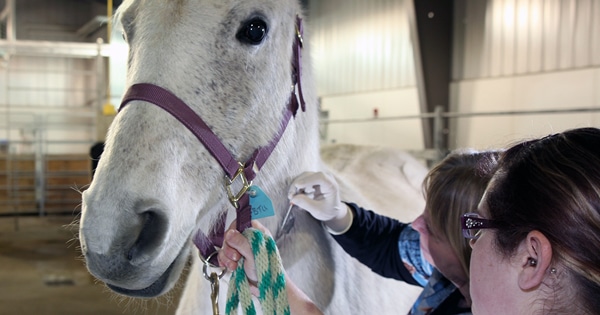
(WCVM Facebook photo)
The curriculum allows students to pursue personal interest areas including small, large or exotic animal care, surgery, medical imaging, anesthesiology, pathology, wildlife medicine or animal-human health-related issues, just to name a few.
Veterinarian Joey Waldman is a graduate of USask. He said, “The program in Saskatchewan prepares students for a broad scope of practice and even someone like me (who knew as much about horses as I knew about particle physics when I got to vet school!) was able to start a career in rural practice and manage to avoid too many catastrophes.
“Veterinary medicine is about understanding of broad principles and using those against the backdrop of species variations. The goal of WCVM was to prepare us for as many different possible paths as are available and I think they did that quite well, having met many graduates from other programs.”
University of Calgary
The University of Calgary Faculty of Veterinary Medicine (UCVM) in Alberta provides an accredited program leading to a Doctor of Veterinary Medicine (DVM) degree. UCVM additionally offers graduate education and advanced clinical training programs in order to meet the veterinary, animal and public health needs of Alberta. It is also a leader in research and clinical trials.
Cool fact: The university has a 19,000-acre working cattle ranch that it uses as a world-class teaching, learning and research facility.
Atlantic Veterinary College
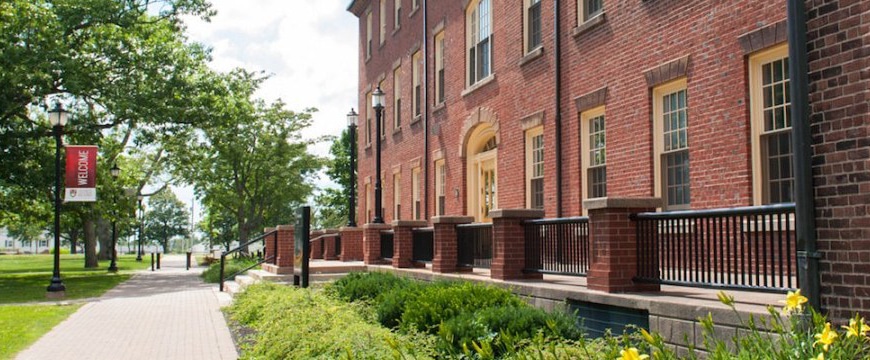
The Veterinary Teaching Hospital is Atlantic Canada’s most comprehensive veterinary referral hospital, caring for over 7,000 small and large animal patients on-site each year. Students also gain valuable clinical experience working with AVC’s Farm Service, Equine Ambulatory, and Aquaculture vet and techs.
Olds College
Besides their world-class veterinary program, Olds College in Alberta offers many continuing education related equine courses including Artificial Insemination, Equine Coaching and Riding Certificates, Equine Massage Therapy, First Aid, Horse Hoof Care and Trimming, Professional Racetrack Exercise Rider and Groom courses and the intriguing-sounding Western Photography Fundamentals.
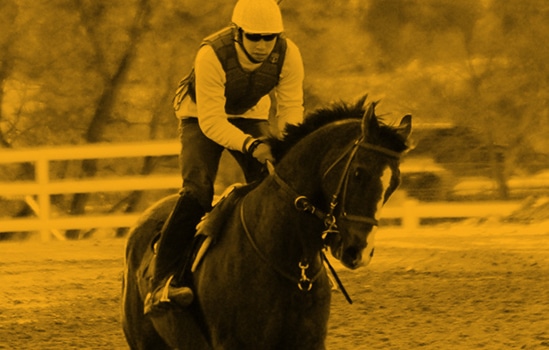
(Olds College photo)
Olds College also has an extensive Equine Reproduction Technician course which lasts one year and is offered both on campus and online. Students learn to become specialists in equine reproduction and become familiar with how to manage a breeding facility, taught by experienced instructors and DVMs. There is also a Farrier Science offering.
Two Olds College graduates, Matthew Denise and Rachel Slevinsky, recently launched their careers at Century Mile Racetrack and Casino. “It was a thrill,” said Denise, who finished fifth in his debut race. “It’s a feeling I’ve never had before.” Slevinsky was also quite pumped about her performance. “I was very excited. I was chomping at the bit for a whole week since I first learned I was going to ride last Saturday.”
The Professional Racetrack Exercise Rider Program has produced many jockeys that have competed in Alberta and Ontario. “Olds College was amazing, to be honest. It was fun to be there and it taught me a lot of stuff I didn’t know,” said Denise, who is originally from Jamaica. “I learned all the basic stuff, how to wrap a horse’s legs, how to clean out stalls, massaging horses, bathing horses, walking horses, how to pick a horse’s feet, how to check their tendons and then how to gallop. I would definitely recommend that people join if they want to get into this industry.”
Slevinsky agreed. “They throw a lot of information at you. The program really gets you ready,”
William Wood University
William Woods University in Fulton, Missouri, in the only university in the United States which offers a four-year college degree in Equestrian Studies. The course teaches riding and business skills and offers majors and minors in equestrian science, equine administration and general equine studies. Students also are provided the opportunity to compete at horse shows across the US.
Leslie Potter is a graduate of William Woods, where she earned a Bachelor of Science in Equestrian Science with a major in saddle seat riding and a minor in journalism. Today she is a writer and photographer in Lexington, KY, and has worked as a barn manager and riding instructor. She recently wrote an article about what she misses about her equine university experience.
“There’s no better way to learn about horses than hands-on experience, and we had an endless supply of that. There were more than 100 horses on campus at any given time, and the students took care of them, from scrubbing waterers and pulling manes to mending blankets and spending the night in the barn when there was a colic watch. Plus, all those horses are donated, so there were plenty of, you know, quirks, in our herd. You learned how to work with all breeds, all ages, and all personality types. You found favourites.
“In college, the evening before an on-campus horse show almost always became an impromptu tack cleaning party. We’d sit in the hallways of our dorm passing around the saddle soap and talking about whatever came up. You just don’t get that kind of camaraderie from Netflix. I learned tons from my professors and, of course, the horses, but I also learned a lot from other students. Since everyone came from different barns in different regions of the country, and because we had several different equestrian disciplines represented, there were a lot of different perspectives on riding and horse keeping. To this day I use ideas I learned from other students at the barn.”
The University of Findlay
The University of Findlay in Ohio offers degrees in English and Western Equestrian studies and Equine Business Management, as well advanced programs which include five days a week of riding show-quality horses with internationally-renowned instructors. You can even bring your own horse! During the program, depending on their focus, Findlay teaches its students show jumping, hunt seat, eventing, dressage, and western disciplines. In past years their riding teams have had great success at Intercollegiate Horse Show Association events.
In the final year, students can pursue USHJA Trainer Certification or USEA Instructor Certification, learn to run a barn and prepare horses for shows and sales, as well as rigorous riding expectations and interview and resume guidance.
Emory & Henry College
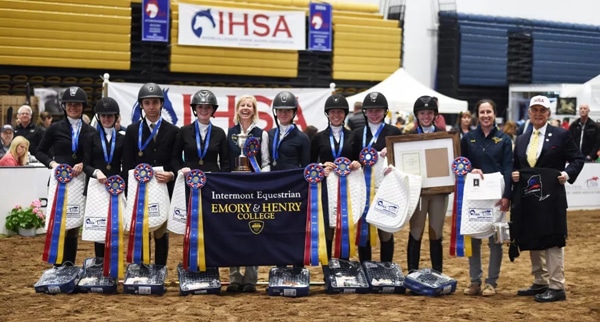
(Emory & Henry College photo)
Jessica Deniston is an assistant Professor of Equine Studies at Emory & Henry College in Virginia. For Jessica, horses have always been apart of her life, “I strive to instill a love for horse care and management in all of my students, rather than just of riding. I believe that building a well-rounded horse person is of the utmost importance and it starts on the ground. I also believe in building a solid foundation of basics in the saddle to build upon with each lesson.
“I enjoy teaching students from the very start all the way through the upper levels, whether they are on a school horse or a horse of their own. Horses and teaching are my passions and combining the two has allowed me to do what I love each day.”
Only a few colleges in the US offer undergraduate degrees and Emery & Henry happens to be one of them, which help students have an easier time finding jobs in the equine industry after graduation. The under graduate program provides a full range of courses in teaching, schooling, horse show management, judging, stable management, anatomy, first aid and equine nutrition.
The University of Kentucky
U of K in Lexington offers a B.S. in Animal Science with an Equine Specialization and a B.S. in Equine Science and Management. The undergraduate program focuses on pre-professional careers in Veterinary Science aimed at science, genetics and breeding; and management business marketing. U of K also contains the world-renowned Gluck Equine Research Centre, a permanent home for equine research faculty in the Department of Veterinary Science gifted to the University in 1985 by Maxwell and Muriel Gluck. In 2022, the Maxwell H. Gluck Equine Research Center is the only scientific institute in the United States with nearly all faculty conducting full-time research in equine health and diseases.
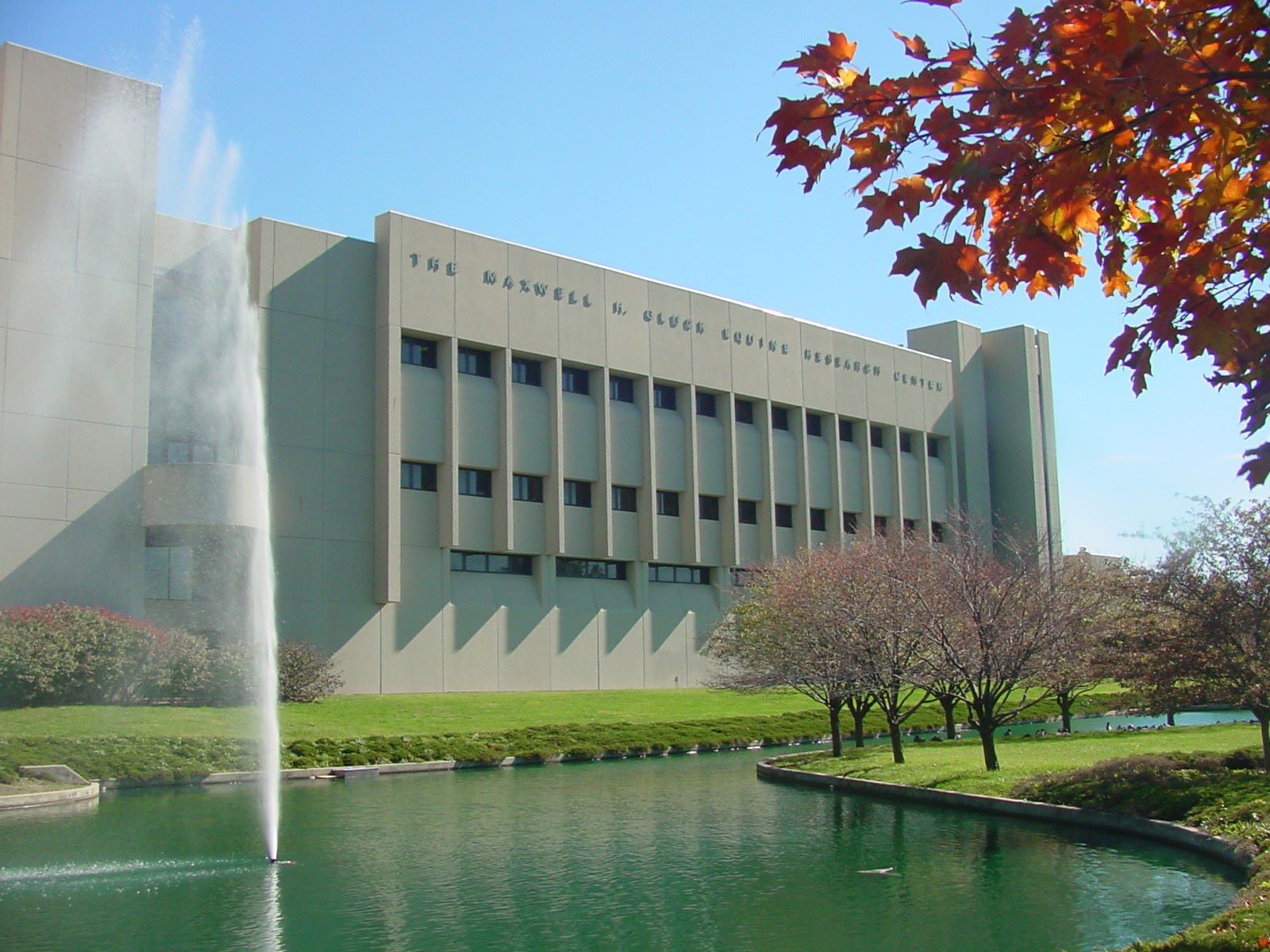
Maxwell H. Gluck Equine Research Center.
Alisa Herbst received her B.S.c in equine science and management at Nuertingen-Geislingen University in Germany. Today she is thousands of miles from home studying for her PhD at the University of Kentucky’s Gluck Equine Research Centre.
“The PhD program at the Gluck Center is a unique opportunity for me, as I get to learn from world-renowned researchers and study in my main field of interest: equine immunology. In addition, I’m provided with excellent advising, exceptional resources for my dissertation research, and I get to work with fantastic colleagues.”
Herbst’s goal is to gain a better understanding of inflammaging (a chronic low-grade inflammation that develops with advanced age) in senior horses. She is studying how exercise can reduce inflammaging and imcrease muscle mass and function in older horses.
It’s clear that by attending a college or university that specializes in equine education, students can gain valuable information which will help them become an important part of the horse industry whether in management, veterinarian studies or investigative medicine. A degree is a great way to start off your career with horses!

